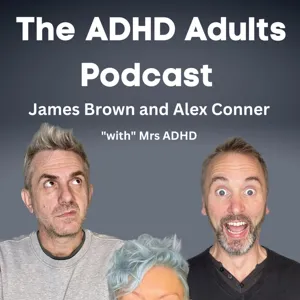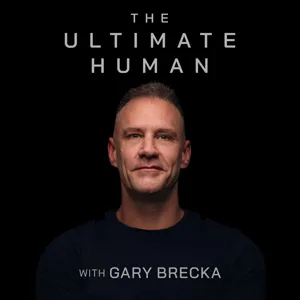Jonathan Haidt On How Social Media Is Rewiring Childhood

Explore "brain development" with insightful episodes like "Jonathan Haidt On How Social Media Is Rewiring Childhood", "Dr. Bonnie Halpern-Felsher: Vaping, Alcohol Use & Other Risky Youth Behaviors", "151 - From stressed to blessed, reprogram your subconscious mind 🧠 ft. Neuroscientist, Em On The Brain", "A Few Reasons Why Kids Shouldn't Use Social Media [Weekly Walsh Original]" and "333. Greatest Hits: Ghost Patterns - Anxiety, Fixation & Survival" from podcasts like ""The Rich Roll Podcast", "Huberman Lab", "OPENHOUSE with Louise Rumball and leading therapists", "The Matt Walsh Show" and "UnF*ck Your Brain"" and more!



![A Few Reasons Why Kids Shouldn't Use Social Media [Weekly Walsh Original]](https://www.podcastworld.io/podcast-images/the-matt-walsh-show-yhr66rmh.webp)
Provia: Click here for FREE GIFT + FREE SHIPPING with your order https://www.proviahair.com/Walsh
Florida banned kids from using social media. Here is why that's a good idea.

Do you ever find yourself fixating on something that you thought you’d already resolved? No matter how long you’ve been practicing thought work, you’ve most likely experienced this in some area of your life. I know I have. So today, I want to share a concept that has really clicked for me in a new way recently and has given me so much relief.
Join me on this episode to hear what ghost thought patterns are and why they continue to haunt you, even after you’ve resolved the underlying thought problem. You’ll learn why our brains are in the habit of misdiagnosing threats to our survival, and a simple tool that will help you redirect your thoughts when your primitive brain engages in old, unhelpful patterning.
Get full show notes and more information here: https://schoolofnewfeministthought.com/333

CHANGE ALARM!!!
The podcast now has a new 'Jingle' (it's not a jingle) and a slightly tweaked structure...
Episode 156 covers the topic of ADHD and neuroplasticity, or how the brain can change well into adulthood. As usual, Alex the Psycho.......education Monkey delivers the evidence behind the subject, all three ADHD Adults give their personal reflections and tips, and then we answer your questions in the final section. 'What has James lost, forgotten or mislaid this week?" returns with Alex 7-6 up for the season, The Metrics Intern continues telling us about the cities we have listeners in, and Alex reads the usual 'definitely real' correspondence. James gets angry about the ‘jingle’, Alex liked Carlsberg Special Brew and Mrs ADHD forgets which podcast this is...
Written by Alex Conner, Samantha Brown and James Brown.
Produced by James Brown and JBHD Ltd.
Social media contacts: @theadhdadults
Music by James Brown and Sessionz
If you would like to support the podcast you can subscribe to extra content here
You can submit a message, question or future topic to the podcast here
You can support and get help from the charity that the show raises money for here
--- Send in a voice message: https://podcasters.spotify.com/pod/show/theadhdadultspodcast/message



In this episode, I talk to renowned neuroscientist Dr. Lisa Feldman Barrett about emotions and the brain. She reveals what the true function of the brain is⎯and it’s not for thinking. We also discuss the impact of past experiences on our cognition and what we can do to overcome our own detrimental patterns. Further into our discussion, Dr. Lisa challenges the traditionally held view that emotions are universal. In her own theory of constructed emotion, she argues that variability in emotional expression exists due to socialization and language differences. We also touch on the topics of hallucinogens, culture, education, relationships, and authoritarianism.
See omnystudio.com/listener for privacy information.



Once more, it's time for a weekly dose of Stuff to Blow Your Mind and Weirdhouse Cinema listener mail...
See omnystudio.com/listener for privacy information.

Most coaching certification and therapy programs don’t teach how to look at socialization and the way it impacts women’s brains and the way they think about themselves in the world. So I’ve created a brand new, free private podcast called How to Coach Like a Feminist: Adding A Feminist Lens to Coaching or Cognitive-Based Therapy.
In this limited series starting September 18, you’ll learn about marketing and selling, the client/coach relationship, how to set your client goals, the feminist coaching lens, and more. If you want to learn how adding a feminist lens to your work can completely change your coaching, text your email address to +1 347 997 1784 and enter the keyword COACH when prompted or visit unfuckyourbrain.com/coach.

Hosted on Acast. See acast.com/privacy for more information.

For transcripts, links and more information, please visit the Speaking of Psychology Homepage.



Roughly 80% of us will experience a traumatic event in our lifetime. And on this episode of The Liz Earle Wellbeing Show, Liz chats to chartered clinical psychologist Dr Cheryl Cross to learn how EMDR therapy can be transformational for severe trauma and how it works.
EMDR, which stands for Eye Movement Desensitisation and Reprocessing, is best known for helping to treat trauma and post-traumatic stress disorder (PTSD). Cheryl shares how this form of psychotherapy uses both the mind and the body to help people recover from traumatic events that have led to poor mental health.
The episode also covers how we define trauma and what can lead to it, who may benefit from EMDR, why it’s never too late to try this form of therapy, and the science behind it.
Links mentioned in the episode:
Hosted on Acast. See acast.com/privacy for more information.

Big Jay Oakerson is a stand-up comic, on-air personality, and podcaster. He's a host of "The Legion of Skanks", "SDR Show", and "The Bonfire" podcasts, and has a new comedy special, "Dog Belly", premiering April 5 on YouTube.
Ari Shaffir is a stand-up comic and the host of "The Skeptic Tank" and "You Be Trippin'" podcasts. His latest special, "Ari Shaffir: Jew," is available now via YouTube.
www.arishaffir.com
Stay up to date
For any inquiries, please email us at hello@podcastworld.io